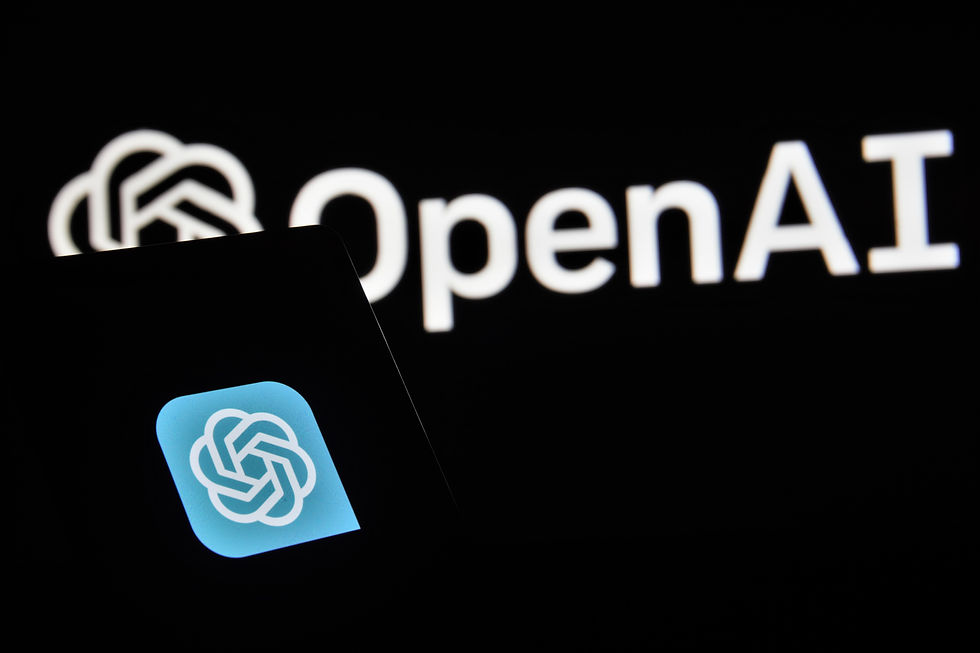The Impact of the AI Trend on Website Design
- Michael Smith

- Oct 27, 2023
- 3 min read
Updated: Jun 13, 2024
In the digital age, we are witnessing rapid advancements in technology, particularly in the field of artificial intelligence (AI). AI has quickly become integrated into various industries, revolutionizing the way we live and work. One sector where AI is making a significant impact is website design. In this blog post, we will explore the various ways AI is reshaping website design and the implications it holds for businesses and users.

Streamlining the Design Process
AI-powered tools are changing the landscape of website design by streamlining the entire process. Traditionally, web designers would spend hours meticulously coding and constructing websites from scratch. However, AI is now enabling designers to automate repetitive tasks, allowing them to focus on more creative aspects of the design process.
AI algorithms can generate website layouts, select color palettes, and even suggest appropriate fonts and images based on predefined criteria and user preferences. This automation not only accelerates the design process but also ensures consistency in design elements across the entire website.
Personalized User Experiences
One of the most remarkable impacts of AI on website design is the ability to create highly personalized user experiences. Through the use of machine learning algorithms, AI-powered websites can analyze user behavior, preferences, and past interactions to deliver customized content and recommendations.
For example, AI can dynamically change website layouts or display personalized product recommendations based on a user's browsing history or previous purchases. This personalized approach to web design not only enhances user satisfaction but also increases conversion rates for businesses.
Enhanced User Interface and Interaction
Another area where AI is transforming website design is in the development of more intuitive and engaging user interfaces. AI algorithms can analyze user data and predict user intent, allowing designers to create interfaces that are more responsive and adaptive.
By integrating AI chatbots and virtual assistants into websites, users can communicate with the website in a more natural and conversational way. Moreover, AI algorithms can detect user emotions and adjust the website experience accordingly, providing empathetic and tailored interactions.
Improved Analytics and Insights
AI-powered website design also brings significant improvements to analytics and insights. AI algorithms can collect and analyze data from user interactions, enabling businesses to gain valuable insights into user behavior, preferences, and trends.
This data-driven approach empowers businesses to make informed decisions about website design and marketing strategies. By understanding user preferences, businesses can optimize their websites to better cater to their target audience, leading to increased engagement and conversions.

The AI trend is undoubtedly having a profound impact on website design. From streamlining the design process to creating personalized user experiences, AI is reshaping the way websites are designed and developed. Businesses that harness the power of AI in their web design strategies can gain a competitive edge by delivering enhanced user experiences, improving customer satisfaction, and achieving better business results.
AI-generated websites offer several benefits such as streamlining the design process, automating repetitive tasks, and ensuring consistency in design elements. They can generate layouts, select color palettes, and suggest appropriate fonts and images based on predefined criteria and user preferences. This automation saves time and effort for web designers and allows them to focus on more creative aspects.
However, it is important to acknowledge that websites created by humans also have their merits. Human designers bring an in-depth understanding of branding, user experience, and aesthetics. They can provide creative and innovative solutions tailored to specific business goals and target audiences. Human designers offer flexibility and adaptability, keeping up with changes in trends, technologies, and user preferences.
In essence, both AI-generated websites and websites created by humans have their strengths and can be valuable in different scenarios. For standardized and quick website creation with a focus on automation and personalization, AI-generated websites can be advantageous. However, for complex and unique projects that require a deep understanding of brand identity and human creativity, websites created by humans can offer a more personalized touch.
As AI technology continues to advance, finding the right balance between AI-generated websites and human creativity will be crucial. It is an exciting time for web design, and businesses must leverage the benefits of both AI and human expertise to stay ahead in the ever-evolving digital landscape.


